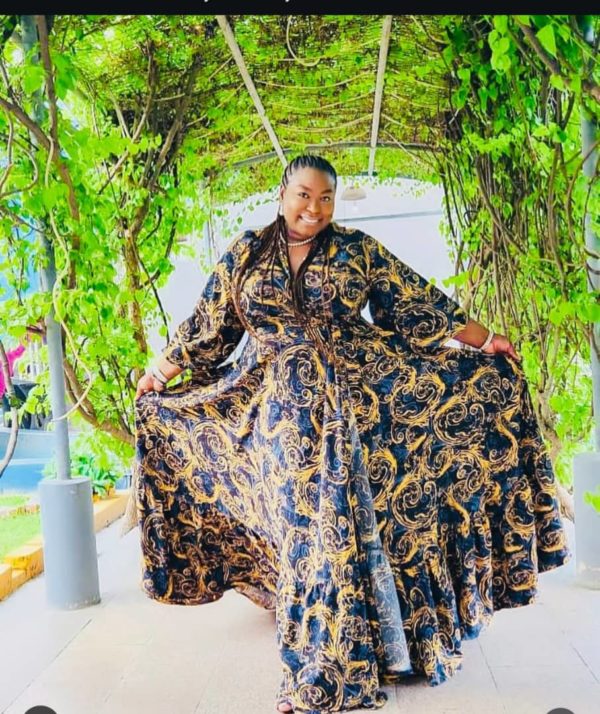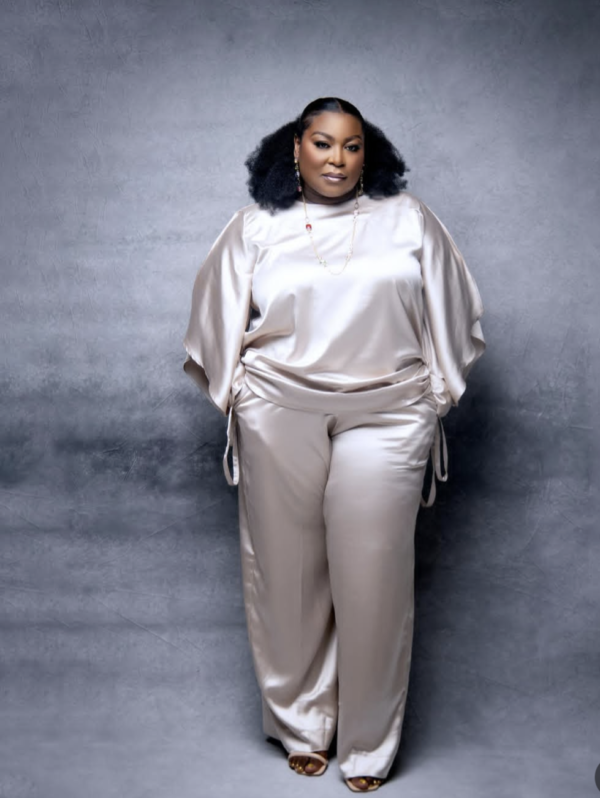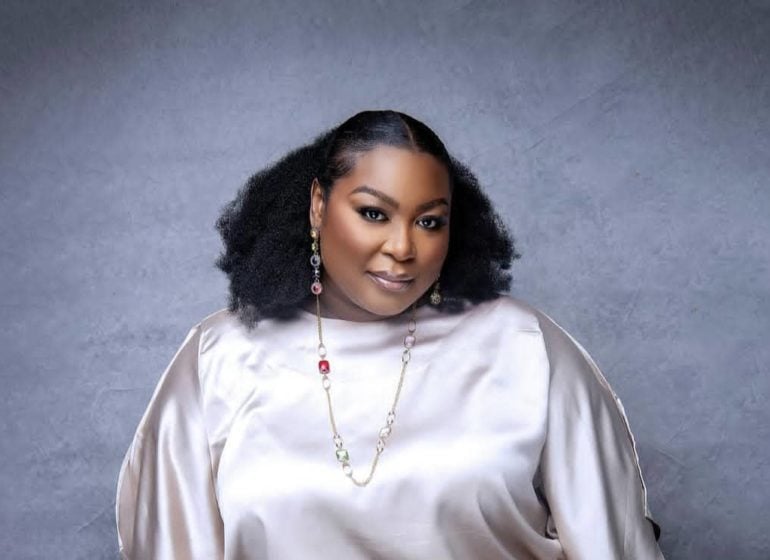Bikiya Graham Douglas is a Nigerian-born British-trained actress, producer, and arts enabler who has made a lasting impact on the Nigerian entertainment industry. With a career spanning over two decades, the 42-year-old has established herself as a versatile and accomplished artist, known for her captivating performances on screen and her dedication to nurturing emerging talent. As the founder of the Beeta Universal Arts Foundation, Bikiya is passionate about promoting arts and culture and empowering the next generation of creatives. In this interview with TheCable Lifestyle, Bikiya opens up about her journey, her passions, and her vision for the future of the entertainment industry.
Congratulations on being featured in the international movie ‘The Ministry of Ungentlemanly Warfare! What was your experience working on this project, and how did you prepare for the role?
Thank you! Being part of The Ministry of Ungentlemanly Warfare was an incredible experience. I was honored to work with a visionary director like Guy Ritchie and such a talented international cast. To prepare for my role as Madam Igbokwe, I focused on understanding the historical and cultural context of the character, refining my accent, and immersing myself in the world the film was set. It was a rewarding challenge, and I’m grateful for the opportunity.

Your movie ‘For Amina’ was selected for the Stockholm City Film Festival in Sweden. How did it feel to have your work recognized on an international platform, and what did you take away from the experience?
It was an incredibly humbling and proud moment for me. For Amina is a project that means so much to me, and seeing it resonate with audiences beyond Nigeria was truly gratifying. It reaffirmed my belief in the power of storytelling and the global reach of Nollywood. The experience also gave me valuable insights into international film markets and the importance of positioning our stories for wider audiences.
You’ve recently pivoted into producing. What inspired you to take on this new role, and what were some of the challenges you faced?
Producing was a natural progression for me. After years in the industry, I wanted to have more creative control over the stories being told and contribute to shaping narratives that truly reflect our culture. One of the biggest challenges was balancing the artistic vision with the realities of production—budgeting, scheduling, and managing logistics. But it was also a rewarding experience, and I learned so much along the way.
The Beeta Arts Festival is celebrating its 5th anniversary! As the founder, what are some of the highlights from the past five years, and what are your plans for the festival’s future?
It’s amazing to see how far the Beeta Arts Festival has come. Over the years, we’ve created a platform that nurtures emerging talent and integrates various forms of African creativity—film, theatre, music, fine and visual arts. A major highlight has been seeing young artists and entrepreneurs use the festival as a launchpad for their careers. Looking ahead, we plan to expand our reach, introduce more training programs, and continue fostering cultural exchange.
The Beeta Playwright Competition is also celebrating its 7th anniversary! How has the competition evolved over the years, and what impact do you think it has had on the Nigerian theatre scene?
BPC has grown beyond my expectations. What started as a competition has now built a vast library of new African plays, given emerging playwrights a voice, and led to multiple stage productions. We’ve received over 4,000 submissions so far and have staged more than 30 productions. The competition has not only revived interest in playwriting but also created opportunities for fresh talent to be discovered.
You’re successfully juggling your acting, art enabling, and producing careers. How do you balance these roles, and what skills have you developed as an actress that have helped you as a producer and art enabler?
It requires discipline and passion. Being an actress has taught me the importance of storytelling, character development, and audience engagement—all skills that are invaluable in production. As a producer, I’ve learned project management, budgeting, and team coordination. Art enabling, on the other hand, has sharpened my ability to visualize concepts and bring them to life. Each role complements the other, and I enjoy the challenges they bring.
As a seasoned actress, Art enabler and now producer, what advice would you give to emerging artists, and how do you hope your legacy will impact the Nigerian entertainment industry?

Stay committed to your craft, always keep learning, and don’t be afraid to take risks. The industry is tough, but persistence and hard work pay off. I hope my legacy inspires young creatives to tell authentic African stories and understand that they can create opportunities for themselves rather than wait for them to come.
What’s next for you? Are there any upcoming projects or initiatives you’re excited about, and how do you see your career evolving in the next few years?
I have some exciting projects in the pipeline, but I can’t reveal too much just yet! However, I’m focused on expanding my work as a producer and developing more impactful films and theatre productions. I also look forward to growing the Beeta Universal Arts Foundation/Beeta Productions and continuing to advocate for arts development in Nigeria.
How do you think your work as an actress, art enabler and producer has impacted the Nigerian entertainment industry, and what changes would you like to see in the industry moving forward?
I believe my work has contributed to amplifying authentic Nigerian stories and creating more opportunities for emerging artists. Moving forward, I’d love to see more investment in the creative industry, better distribution networks for African films, and stronger support structures for actors and producers.
Reflecting on your journey, what have you learned about yourself, and how have your experiences shaped you into the person you are today?
I’ve learned that resilience and adaptability are key. The industry comes with highs and lows, but staying true to my purpose and constantly evolving has helped me grow. My experiences have made me more determined to create impact-driven work and use storytelling as a tool for change.

What made you decide you wanted to be in the movie space?
I’ve always been passionate about storytelling, so acting felt like a natural path for me. Over time, I realized that film is a powerful medium for cultural expression and social change, and I wanted to be a part of shaping that narrative. I am a thespian through and through and love the stage.
What would you say has been the biggest challenge so far?
I navigated the business side of the industry while staying true to my artistic vision. Budget constraints, limited funding for creative projects, and distribution challenges are major hurdles, but they also push me to be more resourceful.
What are your thoughts on the growing claims of sex-for-roles in the industry?
It’s an unfortunate reality in many industries, and it needs to be addressed with serious reforms. We need more accountability, stronger regulations, and safe reporting channels for victims. Talent and hard work should always be the determining factors in casting.
YouTube movies have been on a high rise in Nollywood in recent years. What do you think about it?
It’s an exciting shift because it democratizes access to Nollywood films. More filmmakers can showcase their work without the limitations of traditional distribution. However, quality control and monetization strategies need to be improved to ensure sustainability.
Do you agree that women earn more than men in the industry? If yes, why do you think it is so?

It depends. In some areas, female leads may command high fees due to their commercial appeal, but behind the scenes, directing, crew work, there is still a significant gender pay gap. We need more transparency in pay structures.
What are your thoughts on the growth that Nollywood has experienced over the years, and how can it improve?
Nollywood has grown tremendously, with better storytelling, higher production quality, and wider international recognition. However, we still need more investment in infrastructure, film education, and distribution networks to compete globally.
Copyright 2025 TheCable. All rights reserved. This material, and other digital content on this website, may not be reproduced, published, broadcast, rewritten or redistributed in whole or in part without prior express written permission from TheCable.
Follow us on twitter @Thecablestyle

